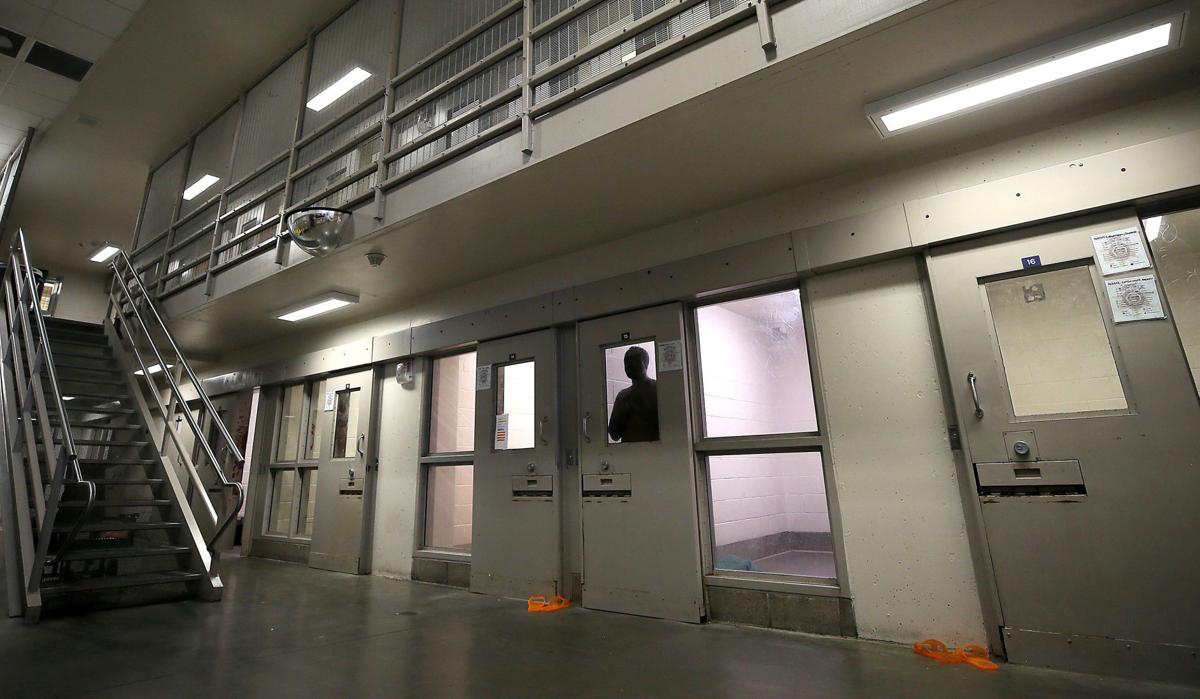Although more than 91% of Pima County employees subject to the county’s vaccine mandate were vaccinated by the Dec. 31 deadline, 56 workers have been fired for not complying.
Seventeen terminations occurred at the Pima County jail, according to a county memo, and the other 39 took place across other county departments.
The Board of Supervisors voted in October to approve a COVID-19 vaccine mandate for employees who primarily work with vulnerable populations confined in a detention facility or nursing home or who provide direct services to children or the elderly. Employees the county deemed to fit this definition were given until Dec. 31 to get the vaccine.
According to the memo, 1,883 employees have been fully vaccinated out of “more than 2,048 employees identified as working in the classifications working with vulnerable populations.” Those who were not fired were reassigned to a new position, resigned or retired.
A day before the Dec. 31 cut-off date, the county announced that 213 employees subject to the mandate were not vaccinated. Acting County Administrator Jan Lesher said many had not reported their vaccination status yet and some waited until the last minute to get their shot.
Officials said 46 employees received the first shot of the two-dose series of the Moderna or Pfizer vaccines by the deadline and have until the third week of January to complete their vaccinations. These employees won’t be able to return to work until they receive the second dose needed to be considered fully vaccinated, Lesher said.
“From November when we started this, each week, the numbers (of vaccinations) ticked up at a fairly steady pace,” Lesher said. “Then as we hit the deadlines, I think people realized that the board was serious about this and wasn’t changing their mind, they went ahead and got vaccinated.”
The county says it granted 23 medical exemptions and religious accommodations but is not allowing employees with exemptions to continue working with vulnerable populations. Instead, these employees can be reappointed to a new county position, but the onus is on them to find one by Jan. 30.
“There are two goals: to keep the population safe and hopefully to get the people who are working with vulnerable populations vaccinated,” Lesher said. “Our goal is not ever to let people go, and so if we can move people around so that everyone has a job but the community is safe, we choose that option whenever possible.”
Staffing troubles at the jail
The sheriff’s department has lost the most employees as a result of the vaccine mandate with 17 unvaccinated jail workers terminated. As of Friday, the jail was short-staffed by 107 corrections officer positions.
Leland Mason, who has served as a corrections officer at the jail for 10 years, said he was served with the notice of his termination on Jan. 3 for not being vaccinated.
“I am not anti-vaccine by any means. I’m just anti-mandate,” he said. “I think that this is a decision that needs to be made between individuals and their health care professionals.”
After an inmate died after testing positive for COVID-19 in the jail in September, Sheriff Chris Nanos pointed to unvaccinated corrections officers as possible sources of transmission since they are among the few people who can enter the cells of quarantined inmates.
But Mason said the jail has “always been very safe, particularly during COVID,” with stringent quarantining and contact tracing protocols in place. However, he said, the jail is suffering from a staffing shortage exacerbated by the vaccine mandate.
“I can tell you right now, from the people that I’m in contact with, it’s not the facility it was; it’s not as safe as it was. We’ve had more than one corrections officer work over 24 hours straight,” Mason said. “We have officers covering four housing units at a time. That’s 240 inmates to one officer. That’s incredibly unsafe.”
Nanos said his department is “putting together a plan” for recruiting and training efforts. He said he doesn’t have the same difficulty hiring deputies as he does corrections workers, a position Nanos said “can seem like a dead-end job.” One idea is to encourage more corrections recruits by publicizing a clear path to eventually become a deputy.
“It gives those COs a career path as well. They could say, ‘There is light at the end of this tunnel; if I don’t like this career, I could always transfer over and move out to the streets and be a deputy,’” Nanos said.
The sheriff hopes to eventually merge the training academies for corrections officers and deputies so all trainees are prepared to work in the jail.
“More than half of my captains were corrections officers. … Half of this department came from that facility. We know that corrections training, the value of officer presence, communication skills, interpersonal communication skills. … All of those things you can translate right to your deputy in the field,” Nanos said. “Why would we not want to look at that facility and our training as a tool to use to better our deputies out the field?”
Although Nanos said he can manage the staffing shortage, Mason said the vaccine mandate and its resulting terminations have made conditions more unstable at the jail.
“We did not require some drastic policy change, but they decided to go through with that policy change anyway knowing that our already short-staffed jail will become even more short-staffed. That’s more dangerous,” he said.





